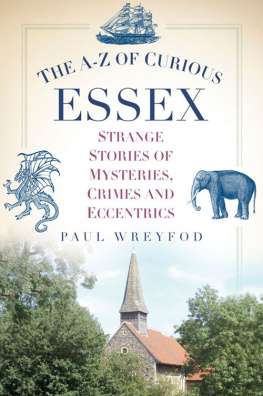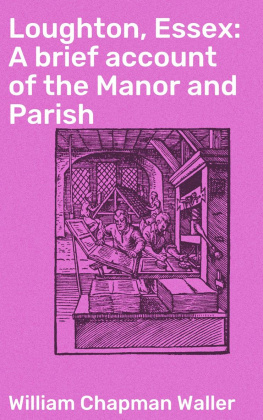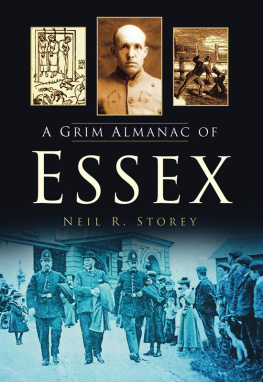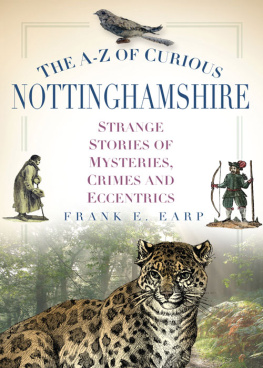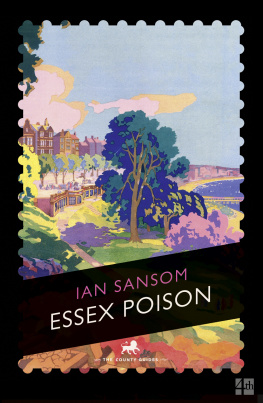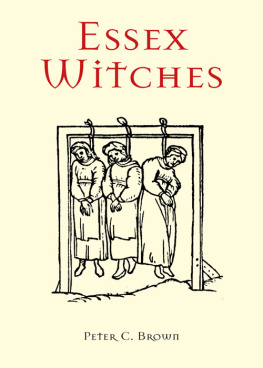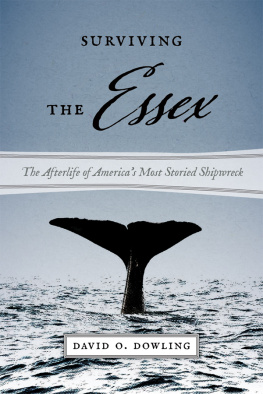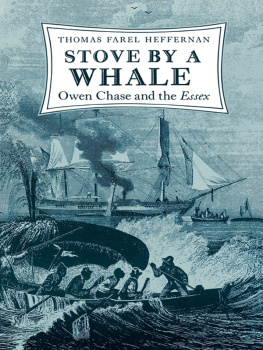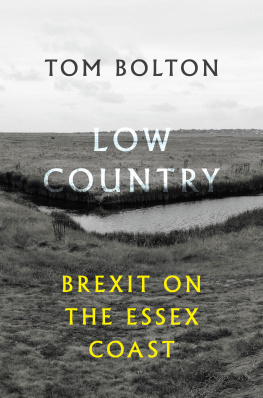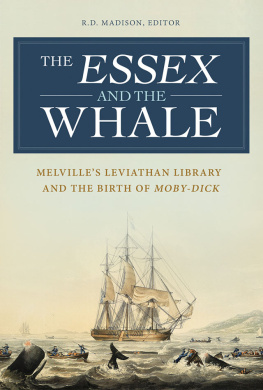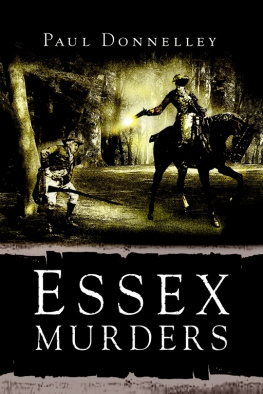
This book is dedicated to Tommy and Avelina
Contents
Oscar Wilde once quipped that people have an insatiable curiosity to know everything except what is worth knowing.
I must confess that what I have penned on the following pages may not necessarily be worth knowing and should you, the reader, wish to go no further, it is unlikely to have a detrimental effect on the development of your intellect. However, the fact you are holding this book in your hands suggests Mr Wilde was right. There is no doubting that we do like to know about things we do not perhaps need to know about.
This is a book for curious people about all things curious in Essex.
My wife has always said Im curious. I am the sort of person who needs to pop my head round that next corner, or to dig a little deeper below the surface. After all, you never know what you might find. And it is even more exciting when you find something you are least expecting.
Every county in England has its curiosities. Essex is one of the largest, and therefore it is no surprise that it should be home to so many curious tales, customs and people.
In the following pages, I hope even those who have lived in Essex all their lives will discover something they never knew about the county. Admittedly, as Mr Wilde remarked, it might not be worth knowing, but I am hopeful it will be of some interest and amusement at the very least.
Paul Wreyford, 2013
The AZ of Curious
Essex
A

ABBERTON

All shook up
There is perhaps no better place to start a tour of curious Essex than with an event that shook the county literally.
In fact, it shook most of the country.
Many people are not even aware that the UK has suffered from a severe earthquake. Even fewer know that the most destructive on record in England took place in rural Essex in 1884. The epicentre of the Great British Earthquake as it is now known was an area south of Colchester. Abberton Reservoir, the largest reservoir in Essex, now conveniently marks the spot on a map of the British Isles. It is said that every building in neighbouring Abberton and Langenhoe was damaged when the earth shook just before 9.20 a.m. on 22 April. It is fortunate that the epicentre was in what is still a very rural part of the county. Even today the villages of Abberton and Langenhoe are sparsely populated. There are often more visitors than residents. The reservoir (built in the 1930s) is now a popular nature reserve, and still a haven of tranquillity.
It was far from tranquil when the earthquake struck on that fateful April morning, however. It is said that the tremor lasted some 20 seconds in Abberton. In those 20 seconds, more than 1,200 buildings were damaged within a radius of 150 miles. The shockwaves were felt over an area of 50,000 square miles, as far north as Cheshire and as far west as Somerset. The earthquake was even felt on the Continent in Belgium.
Locally, hundreds were made homeless and the church at Langenhoe was virtually destroyed. Some believed the earthquake to be a sign of the end of the world.
What is perhaps curious is that the number of people killed is much debated. Mercifully, there were only a handful of casualties, if any at all. Some reports at the time claimed there was no loss of life. However, others talked of a child dying after being hit by falling rubble, while a pensioner is said to have died of fright.

It is difficult to believe that tranquil Abberton Reservoir now marks the spot where a shocking event in British history took place.
Today, quiet Abberton with its reservoir now serving what is the driest county in England seems the unlikeliest place in the world to have been the scene of so much devastation. It is perhaps no surprise that even some residents are blissfully unaware of what happened here more than 125 years ago. One can only assume that newcomers to the parish are a little shocked when they are told though certainly not to the extent of those who experienced that incredible morning in April.

ABBESS RODING

The spy who loved Cromwell
It is no secret that one of the greatest figures in British intelligence was born at Abbess Roding, north of Chipping Ongar. However, few residents today are aware of the fact that Oliver Cromwells celebrated spymaster spent his early life in their village. Even the name John Thurloe means little or nothing to most.
Some historians have suggested that the country has never had a more efficient or effective secret service than when Thurloe was in charge of intelligence. As Cromwells right-hand man, Thurloe was one of the most powerful individuals in England.
Thurloe, who was the son of a former rector of Abbess Roding, was born in 1616. He took little or no part in the Civil War, but rose to prominence within Cromwells government. Thurloe was the man responsible for signing the letters sent out to sheriffs ordering them to proclaim Cromwell as Lord Protector.
It was in his role in charge of the intelligence department that he earned his reputation, however. Thurloe was so successful in detecting and thwarting plots against the republic that it was remarked that Cromwell carried at his belt the secrets of all the princes of Europe. Thurloe was able to keep his master informed of all the plans of foreign governments. Thanks to his many spies and agents, he was always able to keep one step ahead of the enemy, of whom there were many. He uncovered numerous plots.
Thurloe even had spies in the exiled royal court, and it is said that Cromwell could tell Royalists returning from abroad what had been said to them during their secret interviews with Charles II himself. And even when the Royalists returned to power, many of the kings supporters were nervous, as it was said that Thurloe had information that would have sent more than a few to the scaffold as traitors.
Thurloe was arrested at the Restoration, but released on condition that he helped the new government when required. It is said that Charles II even offered him a similar position, such was his reputation, but Thurloe chose to retire from public life. He said he could never serve the new king, as he had done Cromwell, whose rule, he remarked, was to seek out men for places, and not places for men.
Thurloe was devoted to Cromwell and remained faithful to him until the last. It appears he had little intention of helping the new government under Charles II, as, upon Thurloes death in 1668, a false ceiling was discovered in his London home. Stored there were many state papers and intelligence reports; Thurloe presumably determined to ensure his many secrets went with him to the grave.

AUDLEY END

Too grand for a king
Visitors to Audley End one of the finest houses in England would think it was fit for a king.
It is still an enormous and spectacular property, even though it is now only one-third of its original size. Its first owner, Admiral Thomas Howard, 1st Earl of Suffolk, was determined to build the grandest house in the country, and he succeeded. However, even the king appeared to be of the belief it was just a bit too grand.
Next page
